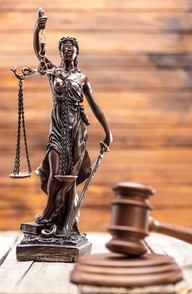Start 14-Day Trial Subscription
*No credit card required

Understanding the Role of Intoxication in Personal Injury Liability
Understanding how intoxication affects personal injury liability is vital. Alcohol or drugs impair judgment, leading to accidents and legal challenges.
In these cases, determining responsibility often involves analyzing things like contributory negligence, comparative fault, and consent and capacity issues. Let’s find out more.
Intoxication Increases the Risk of Accidents
Intoxication, whether through alcohol or drugs, impairs critical functions needed for safe driving. Reaction times slow down, making it hard to respond to sudden changes on the road. And vision blurs, leading drivers to misjudge distances or overlook obstacles.
Alcohol and drugs can also affect decision-making abilities, causing reckless choices like speeding or ignoring traffic signals.
Data from agencies like the National Highway Traffic Safety Administration highlights how alcohol is a significant factor in car accidents. According to the latest statistics from the NHTSA, a staggering 13,524 people died in road deaths that involved drivers under the influence of alcohol in 2022.
This underscores why strict laws are in place regarding intoxicated driving, aiming to protect everyone sharing the road.
And let’s not forget that intoxication can lead to accidents beyond car crashes.
For example:
- An intoxicated individual might cause someone else to slip and fall in a public space due to careless behavior.
- On construction sites, an impaired worker mishandling equipment could endanger colleagues.
- In social settings, excessive drinking might result in unintentionally injuring another person or damaging property.
These situations often create liability issues for the intoxicated individual, potentially leading to lawsuits for negligence and resulting legal consequences.
Intoxication and Personal Injury Liability
In personal injury cases, in which the injured party hires an experienced and reputable personal injury law firm (such as Catania & Catania Injury Lawyers) to take action against the negligent party, intoxication can heavily influence liability.
Courts often assess the extent to which intoxication contributed to an accident or injury. If someone was impaired and their actions led directly to harm, they could face significant legal consequences.
Intoxicated individuals may not intend harm, but the law holds them accountable for negligence when their impairment results in injuries to others.
This principle applies across various scenarios - from car accidents to workplace incidents - where responsibility hinges on whether being intoxicated compromised safety and sound judgment at critical moments.
Contributory Negligence
In personal injury cases involving intoxication, contributory negligence can complicate outcomes. If the injured party also acted negligently, like ignoring clear safety warnings while drinking, it might reduce their claim.
Some states follow a strict contributory negligence rule where any fault from the plaintiff could bar recovery.
This concept means both parties' actions are scrutinized in determining liability and compensation amounts in legal proceedings.
Understanding this dynamic is crucial for fair case resolution.
Comparative Fault
In cases of comparative fault, courts allocate responsibility proportionally among involved parties.
If an intoxicated person causes harm, yet the injured party also holds some blame, each receives a percentage of liability.
For instance, if someone was driving under the influence but the victim was speeding, compensation might be adjusted based on their shared faults.
This approach ensures fairer outcomes by reflecting everyone's role in the incident rather than solely penalizing one party.
Consent and Capacity
Lastly, consent and capacity play crucial roles in liability cases involving intoxication.
If an injured party willingly engages in risky behavior with someone known to be intoxicated, it might impact their ability to claim damages.
Final Thoughts
Grasping the link between intoxication and liability is key in injury cases. Legal nuances, like contributory negligence and consent and capacity, shape outcomes.
So, being informed empowers better decision-making when facing incidents involving impairment, ensuring fairness and accountability.
Feature image courtesy @energepic-com-27411 at Pexels



